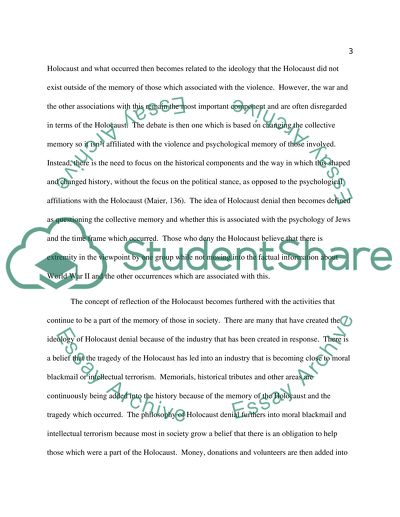Cite this document
(“Holocaust Denial: Changing the History of World War II Essay”, n.d.)
Retrieved de https://studentshare.org/history/1392767-holocaust-denial
Retrieved de https://studentshare.org/history/1392767-holocaust-denial
(Holocaust Denial: Changing the History of World War II Essay)
https://studentshare.org/history/1392767-holocaust-denial.
https://studentshare.org/history/1392767-holocaust-denial.
“Holocaust Denial: Changing the History of World War II Essay”, n.d. https://studentshare.org/history/1392767-holocaust-denial.


